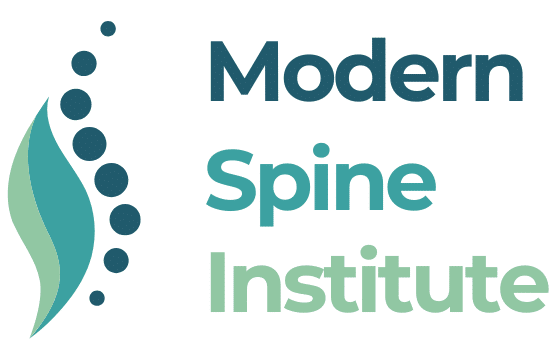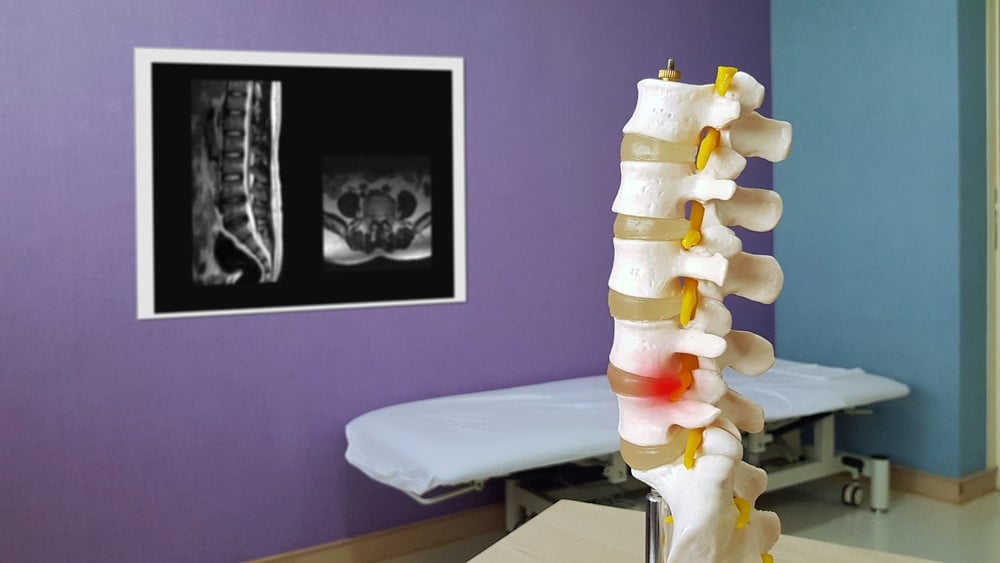Back pain can transform your daily routine from manageable to miserable, especially when a herniated disc is the culprit. Many people experience this common spinal condition, often wondering when professional intervention becomes necessary.
Knowing when to seek help from a spine specialist helps prevent long-term complications and restore your quality of life. A spine surgeon for a herniated disc in New Jersey can provide the specialized care needed for complex cases. In this guide, Dr. Grigory Goldberg, MD, will explain when to see a herniated disc doctor.
Recognizing Emergency Herniated Disc Symptoms
Certain herniated disc symptoms demand immediate medical attention and cannot wait for your next available appointment. These warning signs indicate serious nerve compression that could lead to permanent damage without prompt treatment.
According to The Lancet, roughly 80% of people will suffer from lower back pain at some point during their lives, making recognition of serious symptoms crucial. The following represent medical emergencies that warrant immediate evaluation by a healthcare professional:
- Loss of bladder control: This symptom, along with bowel dysfunction, may indicate cauda equina syndrome, a rare but serious condition affecting the nerve roots at the base of your spine.
- Numbness in legs: Complete loss of sensation in your lower extremities signals severe nerve compression that requires urgent intervention.
- Severe muscle weakness: Sudden weakness in your arms or legs, particularly if progressive, indicates significant spinal nerve damage.
When Conservative Treatment Fails
Most herniated disc cases respond well to conservative treatment approaches within the first few weeks. However, persistent symptoms that don’t improve with rest, medication, and physical therapy indicate the need for spine specialist consultation. Here are some signs that your conservative treatment isn’t working:
- Persistent sciatica pain: Shooting pain down your leg that continues despite weeks of conservative care
- Worsening tingling sensation: Numbness or pins-and-needles feelings that progressively worsen rather than improve
- Sleep disruption: Pain that consistently interferes with your ability to get restful sleep
Patients who seek immediate attention from a herniated disc doctor respond better to treatment than those who delay care. This timeline becomes particularly important for residents who are juggling busy work schedules, causing delayed treatment that can impact both personal and professional life.
Understanding Progressive Neurological Symptoms
Herniated discs can compress spinal nerves, leading to a cascade of neurological symptoms that progressively worsen without proper intervention. These symptoms often start subtly but can quickly escalate to more serious complications.
According to Clinical Radiology, many herniated discs present no symptoms, with one review finding disc bulges in 30% of people in their twenties and up to 84% of those in their eighties.
Progressive neurological symptoms include persistent tingling sensations in your arms or legs, gradual muscle weakness that affects your ability to perform daily tasks, and coordination problems that impact your balance and fine motor skills. A qualified spine surgeon can evaluate these symptoms and determine appropriate treatment approaches.

Choosing the Right Doctor for Herniated Disc Treatment
The National Spine Health Foundation reports that lumbar disc herniations are most common between the ages of 20 and 50, with about 90% occurring at the two lowest lumbar spine levels. Determining which doctor to see for a herniated disc depends on the severity and nature of your symptoms. Primary care physicians can handle initial evaluation and conservative treatment, but specialized care becomes necessary for complex cases.
Different spine specialists and herniated disc doctors include:
- Orthopedic surgeons focus on musculoskeletal conditions and can perform surgical interventions when necessary.
- Neurosurgeons specialize in conditions affecting the nervous system, including complex spinal cord compression.
- Physical medicine specialists emphasize non-surgical rehabilitation approaches and pain management techniques.
Spine Treatment Timeline Considerations
Timing plays a crucial role in herniated disc treatment success. Early intervention often prevents complications and improves long-term outcomes, while delayed treatment can lead to permanent nerve damage.
Seek immediate evaluation if your symptoms haven’t improved after six weeks of conservative treatment. Consider specialist consultation if pain interferes with work, sleep, or daily activities. Don’t ignore progressive muscle weakness or new neurological symptoms, as these indicate advancing nerve compression.
A spine specialist in New Jersey can provide a comprehensive evaluation, including advanced imaging studies, to determine the exact location and severity of disc herniation. This diagnostic approach determines the appropriate treatment for your specific condition.
Dr. Grigory Goldberg, MD, Is the Trusted Spine Specialist in New Jersey
Understanding when to seek professional help from a doctor for herniated disc treatment can prevent serious complications and restore your active lifestyle. Dr. Grigory Goldberg, MD, provides comprehensive spine care with same-day diagnostic capabilities and treatment options.
Our team specializes in both conservative and surgical approaches, ensuring you receive the most appropriate care. For additional information about related conditions, learn more about seeing a spine surgeon for chronic neck pain. We also offer expertise as a spine surgeon in New Jersey for complex cases requiring surgical intervention.
Contact Dr. Grigory Goldberg, MD, for expert herniated disc doctor care and get back to living pain-free. Call (844) 373-2772 in Clifton, NJ, or (732) 908-8585 in Toms River, NJ, for your consultation today.
Our doctors accept most insurance plans, including workers’ compensation, no-fault, and PIP (personal injury protection). Same-day appointments may be available.
Frequently Asked Questions
Here are answers to common questions about herniated disc treatment and specialist care.
Which Doctor Should I See for a Herniated Disc?
Start with your primary care physician for initial evaluation and conservative treatment. If symptoms persist or worsen after six weeks, seek consultation with an orthopedic surgeon or neurosurgeon specializing in spine conditions.
When Should I Consult With a Spine Surgeon in New Jersey?
Loss of bladder or bowel control, complete numbness in legs or feet, and severe progressive muscle weakness indicate serious nerve compression requiring immediate evaluation.
How Long Should I Wait Before Seeing a Herniated Disc Doctor?
Don’t wait longer than six weeks if conservative treatments aren’t providing relief. Research shows that patients who seek specialist care within six months of symptom onset have better treatment outcomes than those who delay care.



